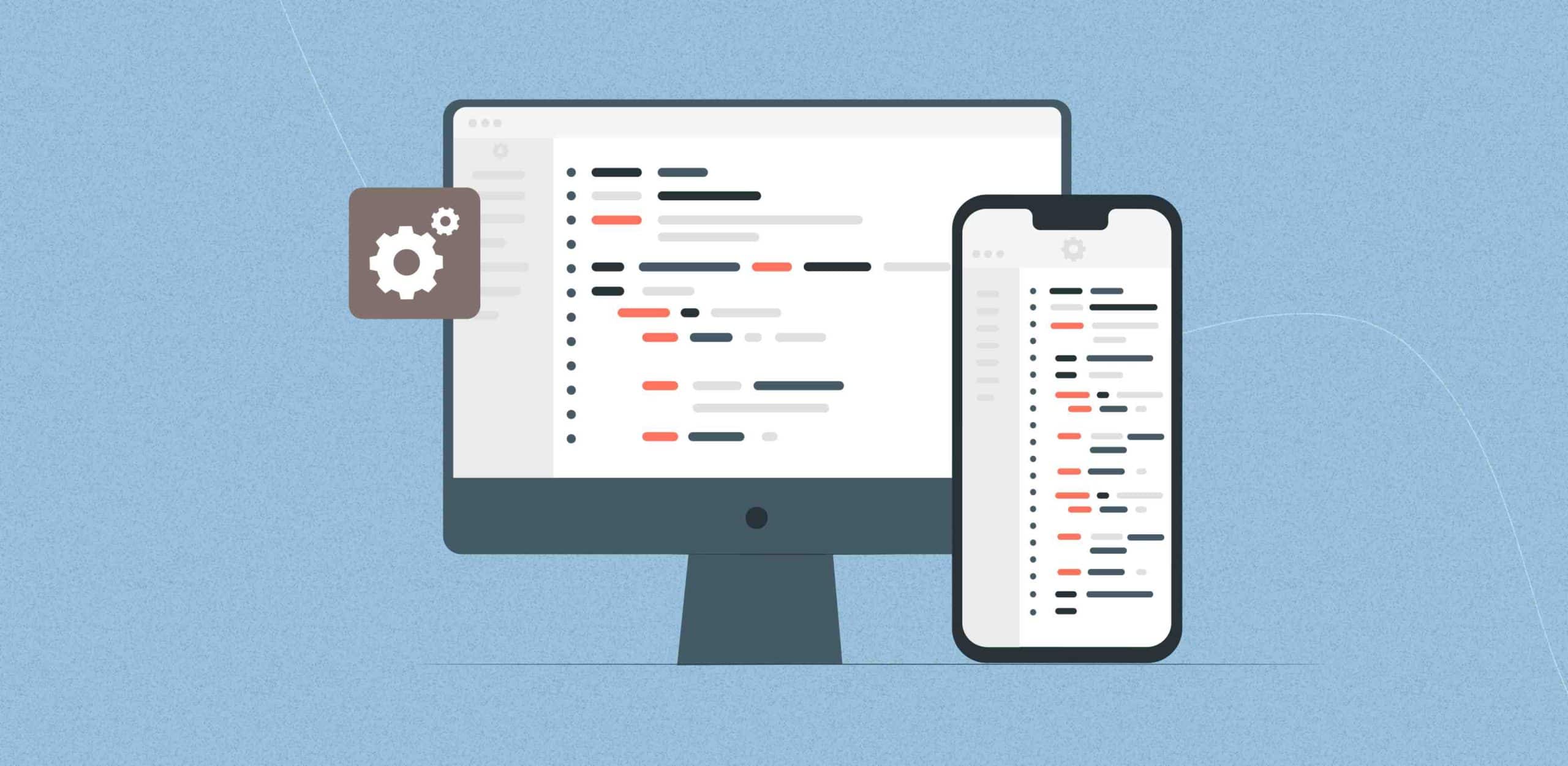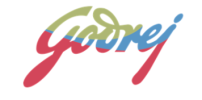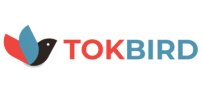E-learning app development is revolutionizing the way education is delivered across industries. Whether for businesses, educational institutions, or individual educators, creating custom e-learning platforms offers unparalleled flexibility, scalability, and personalization. Custom-built e-learning apps cater to specific learning goals, ensuring an enhanced educational experience tailored to the unique needs of users.
However, developing an effective e-learning app requires more than just cutting-edge technology; it’s about integrating the right features that elevate the learning process, boost engagement, and drive user success. In this blog, we’ll dive into the top features to consider when investing in custom e-learning app development. Whether you’re building a corporate training solution, a language-learning app, or an online university course platform, these key elements will help your app meet modern e-learning standards.
Why Custom E-learning App Development?
When it comes to creating an impactful and engaging e-learning experience, custom e-learning app development is far superior to off-the-shelf solutions. While pre-built e-learning platforms can provide basic functionality, they often fall short in addressing the specific needs of your learners, your organization, or your educational goals. Whether you’re an educational institution, a business offering corporate training, or an entrepreneur creating a niche learning app, custom e-learning solutions offer the flexibility, personalization, and scalability required to deliver a truly engaging and effective learning experience.
Here are some key reasons why custom e-learning app development is the better option:
Tailored Learning Paths
One of the primary benefits of custom e-learning app development is the ability to create tailored learning paths. Off-the-shelf e-learning solutions often offer a one-size-fits-all approach, which may not align with the learning styles or goals of your users. With a custom app, you have full control over the content structure, delivery method, and learning paths, allowing you to adapt the experience to the needs of individual learners or specific groups.
For example, if you’re developing an e-learning app for corporate training, you might want to create different learning tracks for various departments, skill levels, or employee roles. With a custom solution, you can easily implement personalized learning paths, ensuring that each user receives content that is relevant to their role, goals, and pace of learning. This level of customization not only improves learning outcomes but also boosts engagement and retention, as learners are more likely to stay motivated when the material is personalized and relevant.
Scalability
As your organization or user base grows, so do your e-learning needs. Off-the-shelf solutions often struggle to keep up with growing demands, especially when it comes to adding new features, integrating additional content, or supporting a larger number of users. Custom e-learning app development offers the scalability needed to expand your platform as your needs evolve.
A custom solution allows you to:
- Add new features: As new educational technologies and trends emerge, a custom app can be updated to include features like artificial intelligence (AI), virtual classrooms, or interactive simulations.
- Support more users: Whether you’re growing your user base from hundreds to thousands, a custom app can handle increased traffic and activity without sacrificing performance.
- Integrate with other systems: As your organization grows, you may need to integrate your e-learning platform with other systems, such as Learning Management Systems (LMS), Customer Relationship Management (CRM) tools, or human resource platforms. A custom app can be designed to seamlessly integrate with these tools, ensuring a smooth and scalable learning experience.
In essence, custom e-learning apps provide the flexibility to scale in tandem with your organization’s growth, ensuring that your app remains relevant and functional as your needs change over time.
See through the blog ‘Guide for startups looking to develop eLearning apps on a budget.
Flexibility
When it comes to offering a unique and engaging learning experience, custom e-learning apps provide unmatched flexibility. Off-the-shelf solutions often limit the types of content and features you can offer, which can be a significant drawback if you’re looking to deliver specialized or interactive learning experiences.
With a custom solution, you can incorporate a variety of advanced features and content types to enhance the learning experience, such as:
- Augmented Reality (AR) and Virtual Reality (VR): These immersive technologies are becoming increasingly popular in education, especially for industries like healthcare, engineering, and architecture. AR and VR can be integrated into a custom e-learning app to offer immersive simulations, virtual field trips, or hands-on training experiences that significantly improve learning retention and engagement.
- Artificial Intelligence (AI): AI-powered features, such as personalized recommendations, smart assessments, and automated grading, can be built into a custom app to provide a more intuitive learning experience. AI can analyze user behavior and adapt the learning content accordingly, ensuring that each learner receives the most relevant and challenging material based on their progress.
- Interactive Quizzes and Gamification: Incorporating interactive elements like quizzes, games, and leaderboards into your e-learning platform keeps learners engaged and motivated. These features are especially useful for corporate training programs or educational apps targeting younger audiences.
The ability to customize and add advanced features ensures that your e-learning app can keep up with the latest trends in education technology, offering a cutting-edge learning experience that meets the unique needs of your users.
Branding and Personalization
In a world where brand identity is everything, having a custom e-learning app allows you to seamlessly integrate your brand’s design elements and values into the user experience. This level of personalization helps create a consistent and professional brand experience across all platforms, enhancing your credibility and trustworthiness.
With a custom e-learning app, you can:
- Incorporate your brand’s design elements: This includes your logo, color scheme, fonts, and overall design aesthetic. By aligning the app’s design with your brand, you create a cohesive user experience that reinforces your organization’s identity.
- Personalize user experiences: Custom apps can offer personalized dashboards, recommendations, and learning paths based on user preferences, behaviors, and past performance. This not only enhances the user experience but also increases user satisfaction and engagement.
- Build stronger relationships with users: A custom app allows you to tailor your communications and interactions with users, providing a more personalized and engaging experience that fosters loyalty and trust.
Whether you’re a corporate entity looking to reinforce brand identity through training programs or an educational institution aiming to create a cohesive learning environment, custom e-learning app development ensures that your platform aligns perfectly with your brand.
Enhanced Engagement and Learning Outcomes
One of the most significant advantages of custom e-learning app development is the ability to create a more engaging, interactive, and effective learning experience. By incorporating features such as personalized learning paths, gamification, and multimedia content, custom e-learning apps can significantly improve learner engagement and retention.
Research shows that learners are more likely to retain information when it is delivered through interactive and engaging methods. With a custom e-learning app, you can:
- Enhance engagement: Features like quizzes, leaderboards, and badges can be integrated to create a gamified learning experience, encouraging users to stay engaged and motivated to complete their courses.
- Improve retention: By personalizing the learning experience and offering multiple content formats (such as video, text, and simulations), custom e-learning apps can improve knowledge retention and comprehension.
- Monitor progress and outcomes: Custom e-learning apps often come with detailed reporting and analytics tools, allowing educators and administrators to track learner progress, identify areas for improvement, and adjust the learning content accordingly.
Essential Features in Custom E-learning App Development
To ensure that your e-learning app development meets the expectations of today’s learners, integrating a broad set of essential features is critical. These features enhance user experience, boost engagement, and improve retention, ensuring that learners get the most out of their educational journey.
User-friendly Interface (UI/UX)
A seamless user experience is vital in e-learning, where the focus should be on content consumption rather than navigating the app. A user-friendly interface ensures learners can quickly access lessons, assignments, quizzes, and other features without confusion. In e-learning, if the app’s design is complex or not intuitive, it can lead to frustration and high dropout rates.
Key aspects of an effective UI/UX design include:
- Easy navigation: The app should have clear menus and pathways to allow users to find courses, assignments, and progress tracking with minimal clicks.
- Consistent design: The interface should maintain uniformity in terms of fonts, buttons, color schemes, and layouts across all screens to create a cohesive learning environment.
- Accessibility: The app should be inclusive, providing features such as text-to-speech, adjustable font sizes, and contrasting color schemes to accommodate users with different abilities and learning preferences.
A well-designed UI/UX keeps learners engaged and focused on their courses rather than on navigating a complicated interface.
Mobile Responsiveness and Cross-platform Compatibility
With mobile learning becoming more prevalent, it’s essential that your e-learning app is mobile-responsive and compatible across multiple devices and platforms. Learners increasingly rely on their smartphones and tablets to access learning materials, whether they’re at home, commuting, or in a remote location.
A mobile-responsive app automatically adjusts its layout and content based on the device it’s being accessed from, ensuring that users on smartphones, tablets, and desktops have an optimized experience. Additionally, the app must maintain cross-platform compatibility, meaning it functions equally well on Android, iOS, and web platforms.
Mobile responsiveness ensures that learners can access their content on the go and in any environment, providing greater flexibility in how and when they learn.
Personalization and Adaptive Learning
One of the key benefits of custom e-learning app development is the ability to create a personalized learning experience. Every learner is different—they may vary in learning pace, style, and preferences. By integrating adaptive learning features, an app can automatically adjust the difficulty and pacing of content based on the learner’s performance.
Adaptive learning algorithms personalize learning paths by:
- Adjusting content difficulty as learners progress through the course.
- Recommending additional learning materials based on previous performance and interactions.
- Tailoring assessments to focus on areas where the learner is struggling.
Examples of personalized features include:
- Customized dashboards: Allow learners to see their progress at a glance and quickly access content relevant to their current learning goals.
- AI-driven content recommendations: Suggest relevant courses or lessons based on the learner’s behavior, progress, and course completion history.
- Learner profiles: Provide an interface for users to set learning goals, track achievements, and review areas for improvement.
Personalization improves learner engagement and outcomes by focusing attention on areas that need development while avoiding content that may already be mastered.
Multimedia Integration
In the modern e-learning landscape, incorporating multimedia elements is essential for engaging learners and enhancing the retention of information. Various types of content—including video, audio, interactive graphics, and animations—cater to different learning styles and keep users engaged.
Video-based learning is particularly popular, offering visual learners an alternative to text-heavy content. Studies have shown that learners retain more information when it’s presented in an engaging, visual format. Additionally, multimedia integration supports the inclusion of:
- Interactive elements such as quizzes and flashcards that reinforce learning in real time.
- Simulations and virtual labs, which allow learners to apply knowledge in practical scenarios without the need for physical resources.
By integrating multimedia, e-learning apps can offer a richer, more varied educational experience that maintains learner interest and encourages active participation.
Gamification and Engagement Tools
Gamification in e-learning introduces elements of competition, reward, and interaction, which are proven to boost learner motivation and engagement. By incorporating gamified elements into your custom e-learning app, you can make learning both fun and interactive.
Popular gamification tools include:
- Badges and certificates: Award learners with badges or certificates for completing modules, achieving high scores on assessments, or mastering specific skills.
- Leaderboards: Encourage healthy competition among learners, particularly in corporate training or group-based learning environments.
- Quizzes and mini-games: Add layers of interactivity that challenge learners while reinforcing the content being studied.
These tools help learners stay motivated and foster a sense of accomplishment, improving retention rates and deepening their connection to the material.
Assessment and Reporting Tools
Effective e-learning platforms must offer robust assessment and reporting tools that allow learners and educators to track progress and performance. Assessments—whether quizzes, tests, or assignments—are critical for measuring learner comprehension and identifying areas that need further development.
Comprehensive reporting tools can provide valuable insights, such as:
- Completion rates: Track how many courses have been completed by learners and identify bottlenecks in course material.
- Performance analytics: Provide detailed insights into learner scores, pass/fail rates, and individual performance on quizzes and assignments.
- Engagement metrics: Measure time spent on different sections of the course, pinpointing areas where learners are most or least engaged.
These metrics allow educators or administrators to tailor future lessons to better meet learner needs, improving the overall effectiveness of the educational program.
Get to know more why choosing Enfin for E-learning App Development Services benefits your business.
Content Management System (CMS) Integration
A Content Management System (CMS) is essential for organizing, managing, and updating the course materials within your e-learning app. In a custom e-learning solution, a CMS allows course administrators or instructors to:
- Upload, edit, and organize content: Quickly and easily manage materials such as PDFs, videos, presentations, and quizzes.
- Monitor learner progress: Access data on student performance and engagement, providing a clearer picture of overall course effectiveness.
- Update and maintain courses: Ensure course content remains relevant and accurate, with the ability to make changes without requiring extensive technical knowledge.
A well-integrated CMS ensures that your e-learning app remains dynamic and adaptable, making it easy to keep content fresh and up-to-date.
Multi-language Support
In today’s global education environment, offering multi-language support is critical to ensuring accessibility for a diverse audience. A custom e-learning app should provide learners with the option to select their preferred language for both navigation and course materials.
For example, an app may offer language options in English, Spanish, Mandarin, and other languages to cater to global audiences. This inclusivity increases your platform’s reach and makes learning accessible to users from different linguistic backgrounds.
Multi-language support is especially important for global organizations or educational institutions that serve international learners.
Security and Data Privacy
When it comes to e-learning app development, ensuring data security and privacy is paramount, particularly when handling sensitive information such as personal learner data, payment details, and course content. A robust security framework helps protect both learners and administrators from potential cyber threats.
Key security measures include:
- Data encryption: Secure learner information, ensuring that personal and financial data is protected.
- Secure login protocols: Implement features like two-factor authentication to prevent unauthorized access.
- Compliance with regulations: Adhere to legal standards like the GDPR (General Data Protection Regulation) or FERPA (Family Educational Rights and Privacy Act), ensuring that your app meets global and local privacy requirements.
By safeguarding learner data, you build trust in your platform, which is critical to long-term success and credibility.
Offline Learning Mode
Not all learners have constant access to reliable internet connectivity, especially in remote or rural areas. Offline learning mode allows users to download course materials, lessons, and other resources for offline use, making learning accessible anytime and anywhere.
This feature is especially useful for:
- Remote learners: Who may not have consistent access to high-speed internet.
- Frequent travelers: Who may wish to continue their studies while commuting or in areas with limited connectivity.
By allowing users to access content offline, your e-learning app can expand its reach, providing uninterrupted learning opportunities regardless of connectivity issues.
Get to know more why choosing Enfin for E-learning App Development Services benefits your business.
Conclusion
In the ever-evolving landscape of digital learning, creating an e-learning app that stands out requires careful consideration of the features discussed above. From an intuitive user interface to adaptive learning paths and multimedia integration, each feature plays a vital role in delivering a seamless, engaging, and effective learning experience.
Partnering with a trusted e-learning app development company is essential to turn your vision into reality. Whether you’re an educational institution, a business looking to train employees, or an entrepreneur launching an online course, investing in custom e-learning app development will give you the flexibility, scalability, and personalized experience needed to meet your goals.
If you’re ready to take the next step in building your own e-learning app, contact us today! We specialize in education app development and can create a custom solution tailored to your needs.
Let’s transform your business for a change that matters.
F. A. Q.
Do you have additional questions?
What is custom e-learning app development?
Custom e-learning app development involves building a tailored educational platform designed to meet specific learning objectives and user needs. It provides flexibility in terms of features, content delivery, and branding, unlike off-the-shelf solutions that may not cater to specialized learning requirements.
Why should I choose custom e-learning app development over pre-built platforms?
Custom e-learning apps offer greater flexibility, scalability, and personalization. They allow you to design features specific to your target audience, adapt to your learning goals, and provide a branded experience. In contrast, pre-built platforms may lack essential customization options and could impose limitations on future growth.
What are the essential features of a successful e-learning app?
The essential features include a user-friendly interface (UI/UX), mobile responsiveness, personalization and adaptive learning, multimedia integration, gamification, assessment tools, content management system (CMS), multi-language support, security, and offline learning mode. These features help deliver a seamless and engaging learning experience.
How does adaptive learning improve the user experience?
Adaptive learning adjusts the content, pace, and difficulty level based on a learner’s performance. It personalizes the learning experience, allowing users to focus on areas that need improvement and move faster through content they already understand, resulting in more effective learning outcomes.
Why is mobile responsiveness important for an e-learning app?
Mobile responsiveness ensures that your app can be used across various devices like smartphones, tablets, and desktops, providing a consistent learning experience regardless of screen size. As more learners access content via mobile devices, a mobile-responsive design is crucial to accommodate on-the-go learning.
How does gamification enhance e-learning?
Gamification introduces game-like elements such as badges, leaderboards, and quizzes to encourage user engagement and motivation. It makes learning more interactive and fun, which helps improve retention and makes the learning experience more enjoyable.
How does a content management system (CMS) help manage course materials?
A CMS allows instructors or administrators to easily upload, organize, and update course materials like videos, assignments, and quizzes. It also helps track student progress and ensures that learning materials stay relevant and current without requiring technical expertise.
What security features should an e-learning app include?
Key security features include data encryption, secure login protocols such as two-factor authentication, and compliance with data privacy regulations like GDPR or FERPA. These measures protect user data and ensure that sensitive information is safeguarded against cyber threats.
Can an e-learning app work offline?
Yes, many e-learning apps include an offline learning mode, allowing users to download content and access it without an internet connection. This feature is particularly beneficial for learners in areas with limited or unreliable internet access.
How do I choose the right e-learning app development company?
When selecting an e-learning app development company, look for a partner with experience in education technology, a strong portfolio, and a proven track record of delivering successful e-learning platforms. Post-launch support and customization options are also crucial factors to consider.














